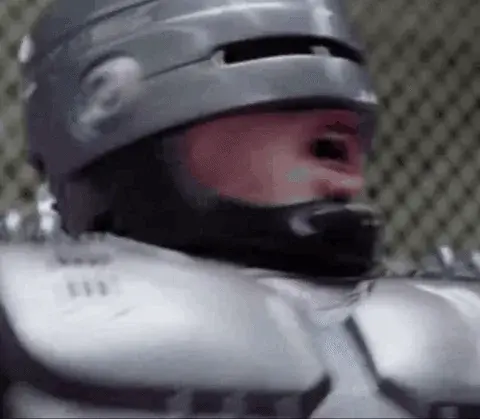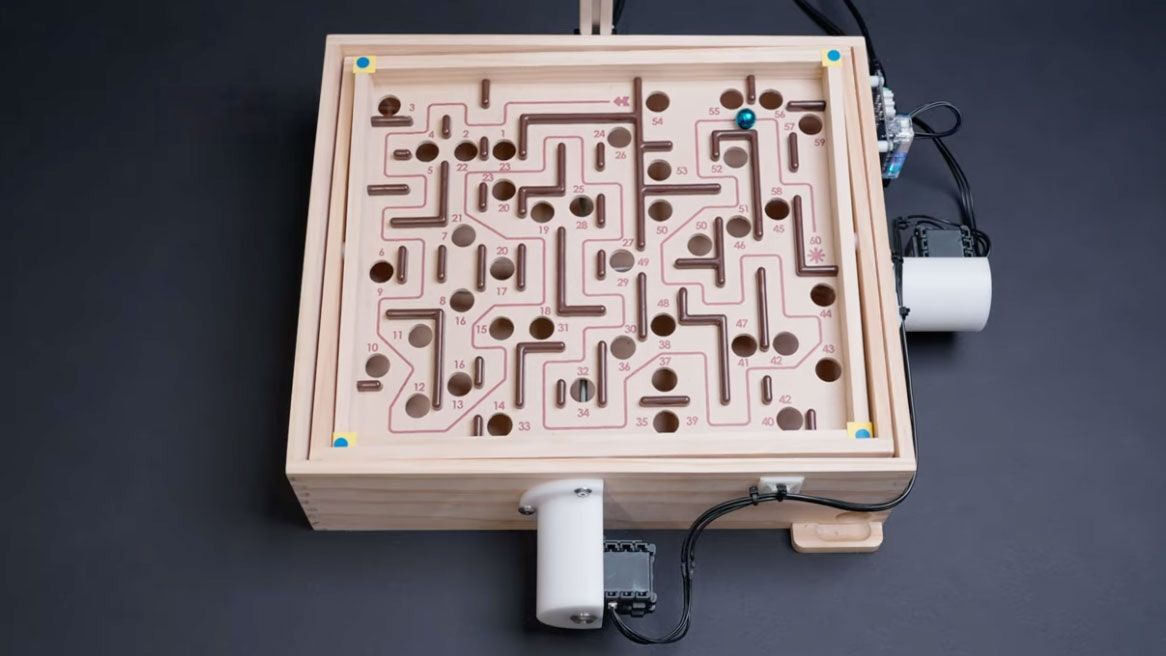I’m not really surprised, the main challenge of that game is motor control, something any machine can do with more precision than a human
My eyes bursted out of my sockets when an AI was able to multiply 8 prime numbers faster than a human.
You don’t need AI to do that, seriously, such a buzzword where a relatively simple algorithm would suffice, don’t tell me it’s harder than double pendulums or those ball bouncing contraptions tech students make since a decade or more
Not needing AI isn’t the point. The point is that AI can do it, and AI doesn’t require a programmer to design and debug a bespoke algorithm to accomplish a task. It would take a human a lot longer than 6 hours to perfect an algorithm to do this.
Not needing AI isn’t the point. The point is that AI can do it, and AI doesn’t require a programmer to design and debug a bespoke algorithm to accomplish a task.
Maybe we should stop to call “AI” everything that is able to solve something by bruteforce.
A true AI, given the board and the rules, should have understood in less than a picoseconds that it need to avoid the holes, like a human does. What this AI did was simply to learn the rules, and a human is still faster in this (at this game at least).It would take a human a lot longer than 6 hours to perfect an algorithm to do this.
Man, the game has the solution drawn on it. A human perfect the algorithm in less than 6 seconds and it probably solve the game in way less than 6 hours. The point of the game is to follow, not to find, the path.
AI is shorthand for a neural network algorithm that learns to accomplish a task through training instead of being told (very explicitly) how to do it by a human. There’s no point in arguing about how people use language. It’s completely arbitrary. You better get used to people calling neural network programs AI because it’s not going away.
What this AI did was simply to learn the rules… the game has the solution drawn on it… The point of the game is to follow, not to find, the path.
You have a very deep misunderstanding of the complexity of this feat and so I’m not surprised you don’t think its impressive. Just follow the path… So easy! -_-
At the start of this task, the AI knew almost nothing. All it knew is it had “hands”, and it had a directive to get the ball to the end.
It didn’t know any of the following:
- what a ball is and that it rolls
- the fact that lines on the board indicate a safe path
- what gravity is and why the ball moves when the knobs are turned
- that turning the knob farther makes the ball go faster, to a point
- that the dark spots on the board (holes) make the ball drop and make you have to start over
- that the thick lines are walls
- that walls block the ball!
You see what I’m getting at here? It understood nothing! Sure, you can explain the rules to a human and they’d be able to start learning how to play, but the real learning is learning the hand eye coordination to get the ball to do anything you want.
Even the concept of “explain the rules” is not simple. Sure it’s simple for a brain that evolved over millions of years and uses natural language. But explaining rules to a computer means programming it. You have to hard code all of the rules of the game, and in this case, all of the physics of the game. You have to write the code that explains all of that to a traditional computer before it can even start attempting to play this game.
This AI needed none of that. It learned everything on the fly!
A human could… probably solve the game in way less than 6 hours
Ha! It’s clear you’ve never played this game. Even if you could get your first win in 6 hours, you wouldn’t then be able to repeat the win every time thereafter.
This AI solving the game in 6 hours is literally the equivalent of one year old baby learning to play and finishing the maze in 6 hours! That is jaw-droppingly amazing, like the author says!
How are you not impressed?
(All analogies are bad. The baby would never have the attention span or motivation to actually play the game. That’s the one inherent advantage the program has. It does what it’s told. Plus the AI has perfect motor control right out of the box. It doesn’t know that it’s spinning motors, but it’s control of them is perfect, and a baby is still learning how to make their muscles do anything at all.)
You see what I’m getting at here? It understood nothing! Sure, you can explain the rules to a human and they’d be able to start learning how to play, but the real learning is learning the hand eye coordination to get the ball to do anything you want.
Ok, but that another thing and still it is not to master the game.
I really doubt that the “AI” know nothing at the beginning, it can not know the rules but it needed to know what goal should be else, why the goal could not be to put the ball in the furthest hole from your starting position ? Or in every hole ? Or to go to every possible position that is not a hole ? For all what the “AI” know, these could be more rewarding ends, don’t you think ?
Ha! It’s clear you’ve never played this game.
I am from a generation where this were the only games… aside trying to die out in the trees trying to do stupid things with the friends… I think I still should have one in the attic…
Even if you could get your first win in 6 hours, you wouldn’t then be able to repeat the win every time thereafter.
Just because I, like every other human, have not the precise control and microseconds reflex of a computer. Give this AI the same level of imperfect control and reaction times of a human and it will be the same. First win in six hours and no guarantee that the folliwing one would be faster.
How are you not impressed?
Maybe because my first exam back at the university was to write a program that play Go against a human in Pascal (damn, how the hell I was able to pass that exam…) and the secod one was to write a program to colour a graphs so that two connected nodes were not of the same color in Assembler (Mips) in the same time the AI used to “beat” the game, starting from scrath.
I mean, it is a nice result but if, as it seems, you give the AI a different board and the AI is not able to beat it at the first try, then you simply used a neural network to brute force a problem in a game where the whole idea is to have a precise control of the board you are using.
Yeah, you have a point here
It’s cool but my question is (I did not see this addressed in the article nor video but might have missed it) did it learn to win the game in general terms or only this one example? I mean, if the layout of the board was changed, would it still solve it?
They don’t discuss it here, but it’s most likely a reinforcement model that operates different generations of learned behavior to decide if it’s improving or not.
It would know that the ball going in the hole is “bad”, and then try to avoid that happening. Each move that is "good’ is then kept in a list of moves it should perform in the next generation of its plan to avoid the “bad” things. Loop -> fail -> logic build -> retry. After 6 hours, it has mapped a complete list of “good” moves to affect it’s final outcome.
The answer your question: no, it would not be able to use what it learned here on a different map of the board. It’s building reactions to events based on this one board, and bound by rules. You could use the ruleset with another board, but it would need to learn it all again just as a human would.
The thing about these models is less that they will work (it is assumed they eventually will through trial and error), but how efficiently they will work. The number of generational cycles and retries is usually the benchmark when dealing with reinforcement, but they don’t discuss that data here either.
Yes, but that’s kind of my point
We see it learn something with insane precision but most often it is almost an effect of over-training. It probably would require less time to learn another layout but it’s not learning the general rules (can’t go through walls, holes are bad, we want to get to X), it learns the specific layout. Each time a layout changes, it would have to re-learn it
It is impressive and enables automation in a lot of areas, but in the end it is still only machine learning, adapting weights to specific scenario
It did learn to use shortcuts to skip parts of the maze, and had to be told not to. Super interesting!
Yes, but that’s only because a generation found some random, specific motion that scored better. Not because it analyzed that doing a skip should be possible
Oh yeah? Can it tilt the board all the way to one corner, then pop the other corner and send the ball flying right to the end?
No, it’s amateur at best.
That’s addressed in the article actually. They had to program it so as not to cheat when they found it actually trying to cheat.
This is pretty much what I’d expect AI to be best at.
When the AI can solve one of these I’ll be impressed:
A blast from the past… Damn, now I have the urge to recover mine… from somewhere in the storage room… if it still exist…
Hey, I also had a toy like that! Cool!
The only thing that is hard about this game is to control the board, which is the concept of it.








